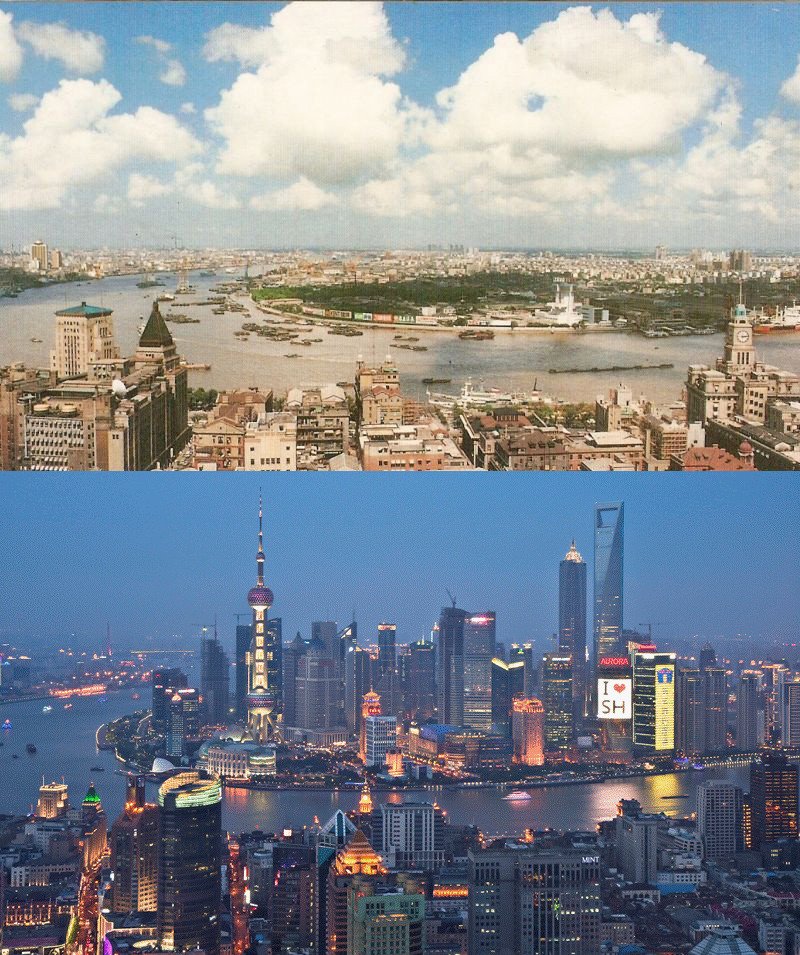What would you do in 20 years?
Many of you may have seen this shot before, but it's still potent.
Shanghai 1990 vs. 2010
My favorite things about these shots (apart from serious thought provoking elements):
These two pictures, first from Shanghai in 1990 and the 2nd from 2010, brings up so many thoughts and questions.
How did China change the city so quickly?
Is Shanghai and China better for developing this quickly?
What was lost or destroyed? What was gained?
Why can't we, in the USA, move more quickly and nimbly, but also wisely?
Thanks to Daily What for the great comparison shots.
Shanghai 1990 vs. 2010
My favorite things about these shots (apart from serious thought provoking elements):
1990: density of barges, and the clouds.
2010: the variety of color in lighting, and the scale and audacity of the "I ♥ SH" sign.Lastly, the fact that the scale and the time of day are different do not matter. They actually enhance the point of the comparison without exaggerating it.
These two pictures, first from Shanghai in 1990 and the 2nd from 2010, brings up so many thoughts and questions.
How did China change the city so quickly?
Is Shanghai and China better for developing this quickly?
What was lost or destroyed? What was gained?
Why can't we, in the USA, move more quickly and nimbly, but also wisely?
Thanks to Daily What for the great comparison shots.



As far as your last question is concerned, it should be obvious that a command and control political system can do many things that other forms of governance can not. Second, comparing China and the U.S. in terms of development is not very productive, or is so only if a long-range historical view is taken, which vitiates your question. Third, who is to say any development is wise? Certainly not China's nor the U.S.'s. Not with the bated breath of global warming growing ever hotter on the backs of our necks. Using the word wise raises all sorts of slippery moral, ethical, and philosophical questions that most urban planners, like me, hesitate to get involved in.
ReplyDeleteA better question that you did not ask concerns Shanghai's present problems that are related to its rapid development. But, since China is a brutally repressive country that cares not for democratic principles or values (such as individual freedom) or for trenchant criticism of its policies, those answers are not likely to be found in the published literature.